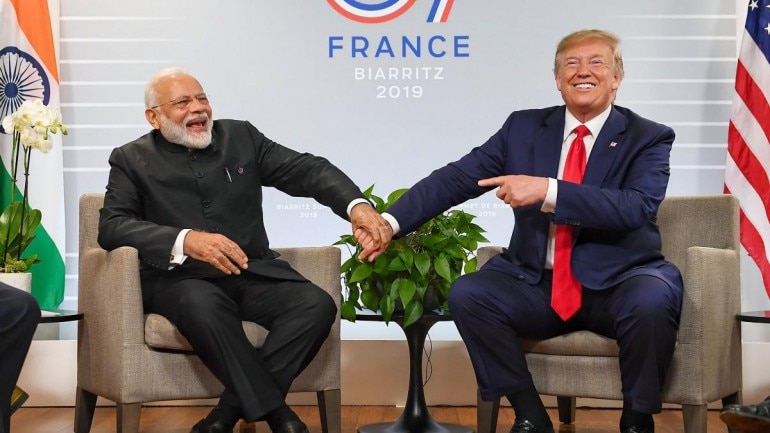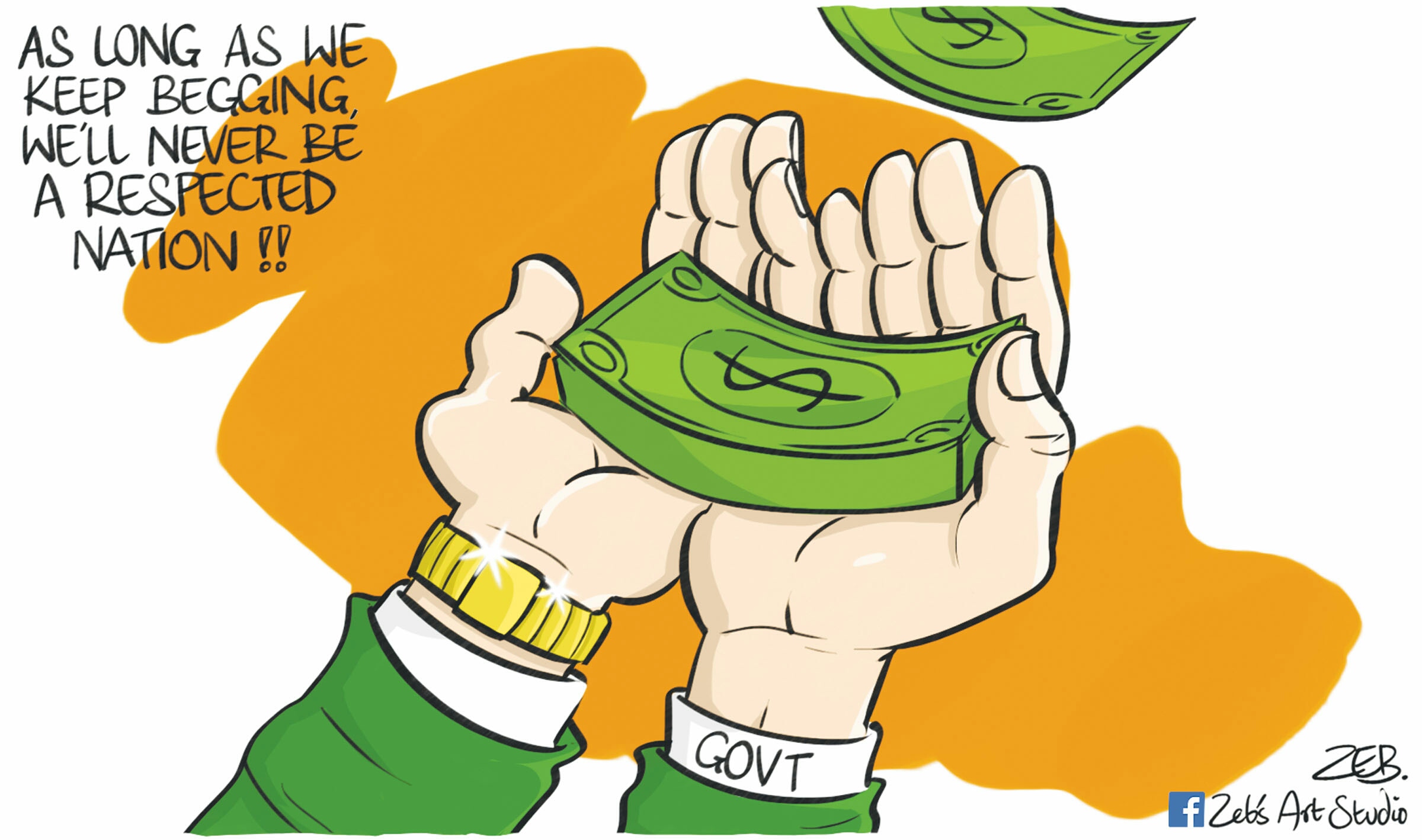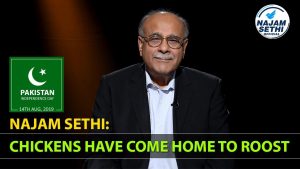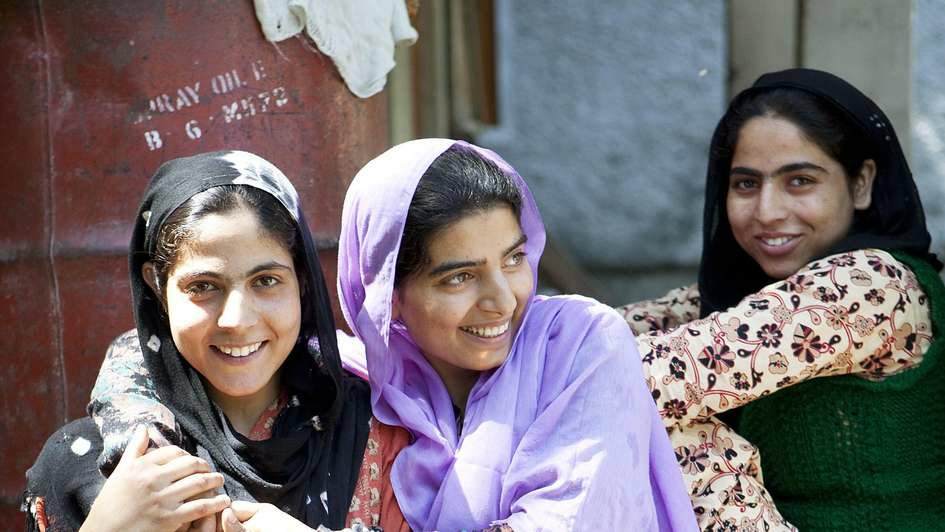UN Resolutions on Kashmir are Null & Void / Krishan Tyagi
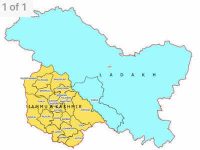
Jammu & Kashmir – Ladakh Union Territories
Before discussing the UN Resolutions relating to Jammu & Kashmir and diagnosing the quagmire Pakistan is in, let’s have a quick look at Articles 370 and 35A of the Indian Constitution over the abrogation of which Pakistani PM Imran Khan and the Pakistani establishment are so “anxious and distressed”.
Article 370 in the Constitution of India which came into effect in 1949 gave a special status to the state of Jammu & Kashmir (J&K) under which the state had a separate constitution (written and adopted by a duly elected Constituent Assembly of Jammu & Kashmir in November 1956) and a separate flag. It allowed the state jurisdiction to make its own laws in all matters except finance, defence, foreign affairs and communications. That meant the residents of the state lived under different laws from the rest of the country in matters such as property ownership, employment and residency. The Article denied property rights in the region to the Indian citizens from outside J&K.
At the same time, the Constitution of Jammu & Kashmir 1956, that ran parallel to the Constitution of India in terms of their secular character and democratic system, in its Preamble recognised the accession of the state to India on 26th October, 1947 through the Instrument of Accession signed by former ruler of Jammu & Kashmir Maharaja Hari Singh, committed to the concept of single Indian citizenship, and defined the state as an integral part of the Union of India.
The Article was drafted in Part XXI of the Indian Constitution: Temporary, Transitional and Special Provisions. Some aspects of Article 370 got diluted over the decades in the fields of judicial system and public administration.
Under the Article 370 of the Indian constitution, in 1954 another amendment in the Constitution was made, called Article 35A, through an Executive Order (called Presidential order), meaning without the approval of Indian Parliament. Article 35A permitted the legislative assembly of Jammu & Kashmir to define permanent residents of the region. The Article forbid non-J&K citizens of India from permanently settling, buying immoveable property, holding local government jobs, or winning educational scholarships in the state.
Article 35A, referred to as the Permanent Residents Law, also barred female residents of Jammu & Kashmir from property rights in the event that they married a person from outside the state. The provision also extended to such women’s children.
Evidently, the Article clearly discriminated against women. To quote an example, former chief minister of J&K Farooq Abdullah marrying a lady of British origin loses no property rights, but his daughter and Omar Abdullah’s sister Sara lost all her property rights in J&K because of marrying Sachin Pilot who is not from J&K.
Apart from the Article 35A discriminating against women, these Articles also created anomalies in the Indian democracy. While Indian citizens who were “Permanent Residents” of J&K could buy property, have government jobs and settle permanently in any other state of India, non-J&K citizens of India were not allowed to do the same in Jammu & Kashmir. Another problem emanating from Article 370, known in Britain as ‘the West Lothian Question’, was that the MPs and Union ministers coming from J&K could vote on legislation for the rest of India on subjects in the Union and Concurrent lists of the Constitution of India, the Indian parliament, ie, MPs from other states, had no right to legislate on those subjects for J&K.
As mentioned, Article 35A did not have any parliamentary sanction and was supposed to be temporary too.
The Government of India revoked Article 35A through a Presidential Order and abrogated Article 370 by passing an Act through the Indian Parliament in August 2019. In addition, the Indian government, using its Constitutional powers, reorganised the region into two Union Territories of Jammu & Kashmir and Ladhakh. It was in accordance with the long-standing demand for a separate UT status for Ladhakh, which has now become the only Buddhist majority unit in the federation of India.
Pakistan never recognised that Jammu & Kashmir enjoyed a special status in the Union of India through Articles 370 and 35A in the Constitution of India. Pak government, establishment and media call the Indian region of Jammu and Kashmir “Maqbooza Kashmir” (Occupied Kashmir), the formal phrase being “Indian Occupied Kashmir (IOK)”. But the moment the Modi government decided to abandon those provisions in the Indian Constitution, Pakistan decided it is a violation of some agreement with Pakistan! Pakistani establishment claimed the Article 370 could not be removed unilaterally by India. Why not? Was the Article introduced in the Indian Constitution under some mutual agreement between the two countries? Pakistani establishment cannot answer the question in the affirmative.
Yet Pakistan’s reaction was very shrill. Pakistan’s National Assembly in a joint session condemned India for unilaterally changing the status of Jammu & Kashmir. Pakistan downgraded the diplomatic relations with India by sending the Indian envoy back home; the trade with India has been stopped; the train and bus services between the two countries have been stopped; Pakistani airspace has again been restricted for Indian planes; and most importantly, Pakistan is taking the matter to the United Nations Security Council (UNSC) and International Court of Justice (ICJ), if possible. Prime Minister Imran Khan has phoned world leaders and Foreign Minister Shah Mahmood Qureshi has visited Beijing seeking China’s support at the UNSC to pressurise India to withdraw its measures in relation to Jammu and Kashmir.
However, there has been no response from the world leaders to Prime Minister Imran Khan’s SOS calls. Saudi Arabia, Malaysia, Britain, France, Canada and other countries either ignored Pakistan’s requests for intervention or told Pak leaders that they were “watching the situation”! The European Union in response actually slammed Pakistan for exporting terror to India and Europe. Thinking that Pakistan might be useful to Americans in Afghanistan, US President Donald Trump flip-flopped between ‘being happy to mediate between India and Pakistan’ and ‘leaving it up to PM Modi to handle the situation’, that excited Pak leadership one minute and depressed the next.
China was the only country that extended somewhat visible but inconsequential support to Pakistan. It forwarded Pakistan’s letter for the UNSC meeting to discuss Indian government’s move to end the special status of Jammu and Kashmir, advanced Pakistani narrative at the closed-door meeting of the UNSC held on 16 August 2019, and after the 73-minute closed-door meeting the Chinese envoy used his newly acquired English language skills to not only criticise India, but to portray his own views as the views of the entire UNSC, even violating the principle of confidentiality of a closed-door meeting. But, the farcical utterances of the Chinese envoy impressed no one in the international community. People around the world were flabbergasted that a country that has trampled over human rights from Tibet to Tiananmen Square, has imprisoned more than one million Uighur Muslims and is facing a mass revolt to its rule in Hong Kong – if there is a plebiscite in Hong Kong tomorrow, it would vote unanimously to leave China – has got the nerve to talk about “human rights violations” in a democratic country like India!
Apart from that small achievement, whereafter Pak foreign minister bragged that “Kashmir issue has been internationalised”, Pakistan drew blank in the international diplomacy. Even the members of the Organisation of Islamic Countries (OIC) and other Muslim countries did not support Pakistan on the issue. Actually as a slap in the face for Imran Khan, the UAE made its stand loud and clear that the removal of Article 370 from its Constitution was India’s internal matter.
Despite getting cold-shouldered by the international community, one thing that Pak leaders keep on harping about is the UNSC Resolutions relating to Jammu & Kashmir, at least to their domestic audience. Quite disingenuously they give the impression to the people of Pakistan that the UNSC passed resolutions directing India to conduct a plebiscite in J&K whether the people there want to be with India or Pakistan. Also, generally people in Pakistan think the plebiscite was supposed to take place in the Indian region of Jammu & Kashmir only. But “defying UNSC, India did not carry out the plebiscite”, the people of Pakistan are told. And, that’s why quite “justifiably”, as mentioned, Indian region of Jammu & Kashmir is called “Indian Occupied Kashmir” in Pakistan.
Let us look at the UNSC Resolutions in detail and their brief background –
The hostilities in J&K started on 22 October 1947 when Pakistan’s Pashtun tribal militias crossed the border of the then independent state of Jammu and Kashmir. On Maharaja Hari Singh signing the Instrument of Accession on 26 October 1947 and its acceptance by Indian Governor General Lord Mountbatten on 27 October 1947, Indian forces arrived in Kashmir to push back the invaders, and the war between the two sides ensued. On 31 December 1947 India referred the Jammu and Kashmir dispute to the UN Security Council.
At the UN Security Council, in relation to the Jammu and Kashmir dispute, Resolutions 38, 39, 47, and 51 were passed in 1948, Resolution 80 was passed in 1950, Resolution 91 was passed in 1951 and Resolution 122 in 1957.
Among them, the main resolution was the UNSC Resolution 47, adopted on 21 April 1948, wherein the proposal to hold a plebiscite in Jammu and Kashmir was made, that we will be looking in more details in the coming paragraphs.
Before that the Resolution 38 of 17 January 1948 called upon both India and Pakistan to take immediate measures (including public appeals) to improve the situation on the ground, and to refrain from doing anything which might aggravate the situation. Under the Resolution 39 of 20 January 1948, the UNSC constituted a Commission, called UN Commission for India and Pakistan, to resolve the dispute between them over the state of Jammu and Kashmir.
The Resolution 51 of 03 June 1948 was just a follow up of Resolution 47 directing the UN Commission to visit the areas of dispute. However, as detailed below, for years no progress took place on Resolution 47 and the story of further Resolutions is that of disagreements over the withdrawal of troops.
As said, the main Resolution in this regard was the UNSC Resolution 47, adopted on 21 April 1948, wherein the proposal to hold a plebiscite in Jammu and Kashmir was made. The Resolution had recommended a three-step process for the resolution of the dispute between India and Pakistan. In the first step, Pakistan was asked to withdraw all its nationals from Kashmir, ie the parts of the state that it occupied through, as seen by the UNSC, an unlawful invasion. To quote the original text, the Resolution said: “The Government of Pakistan should undertake to use its best endeavours to secure the withdrawal from the state of Jammu and Kashmir of tribesmen and Pakistani nationals not normally resident therein who have entered the state for the purpose of fighting, and to prevent any intrusion into the State of such elements and any furnishing of material aid to those fighting in the State.”
In the second step, India was asked to progressively reduce its forces to the minimum level required for law and order. The Resolution said, “when it is established to the satisfaction of the Commission (UN Commission for India and Pakistan) set up in accordance with the Council’s resolution 39 (1948) that the tribesmen are withdrawing and that arrangements for the cessation of the fighting have become effective, the Government of India should put into operation in consultation with the Commission a plan for withdrawing their own forces from Jammu and Kashmir and reducing them progressively to the minimum strength required for the support of the civil power in the maintenance of law and order.”
In the third step, India was asked to appoint a Plebiscite Administrator nominated by the United Nations who would conduct a free and impartial plebiscite. “When the Indian forces have been reduced to the minimum strength”, outlining the conditions such as equitable representation of both India and Pakistan in the administrative bodies for a fair plebiscite the Resolution laid out the third step, “The Government of India should undertake that there will be established in Jammu and Kashmir a Plebiscite Administration to hold plebiscite as soon as possible on the question of the accession of the State to India or Pakistan.”
As can be seen from the original text of the Resolution, the proposed three steps to resolve the Kashmir dispute were to be taken in sequence, meaning the second step was to be taken up on the completion of the first one, and the third step was to be taken up on the completion of the second one.
But Pakistan never withdrew its nationals from Kashmir, the territory internationally called ‘Pak Occupied Kashmir’. And, because Pakistan did not take the first step that it was asked to, and thus even the first condition for conducting the plebiscite did not get fulfilled, things did not move further.
So, the reality of the UNSC Resolutions on Kashmir is that it was Pakistan that defied the UNSC directions and did not leave the parts of Kashmir that it occupied through an unlawful invasion, rendering the UNSC Resolution ineffective.
In fact, the founder and first Governor General of Pakistan Muhammad Ali Jinnah did not believe in a plebiscite. On 1 November 1947 Jinnah rejected Indian Governor General Lord Mountbatten’s proposal to decide the accession of Junagarh, Hyderabad and Kashmir by an ‘impartial reference to the will of the people’. His reply to Lord Mountbatten was that a plebiscite was unnecessary and states should accede according to their majority population. Jinnah was willing to urge Junagarh to accede to India in return for Kashmir. When Mountbatten suggested that the plebiscite could be conducted by the United Nations, Jinnah again rejected the proposal, hoping that the invasion would succeed and Pakistan might lose a plebiscite. According to constitutional expert AG Noorani, Jinnah ended up squandering his leverage.
Later for the plebiscite, Jinnah demanded simultaneous troop withdrawal, but it was not accepted as the UNSC accepted the legitimacy of Indian forces in Jammu and Kashmir because of the Instrument of Accession, while Pakistani forces invading the state was seen as an hostile and unlawful act. And thus Pakistan did not withdraw its nationals as directed by the UNSC. In fact, in a complete violation of the UNSC Resolution, in May 1948 the Pakistani army officially entered the conflict.
Now the Pak leaders cry foul that the UNSC Resolutions have not been acted upon. They say it is a failure of the United Nations that the Security Council resolutions have not been implemented. But the Resolutions could not be implemented because Pakistan did not cooperate with the Security Council. Despite the fact that India took the matter to the UN (and therefore was bound to accept the judgement of the UNSC) and itself being the invading party, Pakistan would not accept the minimal presence of Indian forces proposed under the UNSC Resolution. It was Pakistan that failed the United Nations. As many observers have concluded, the responsibility for the non-implementation of the UN Resolutions lies squarely with Pakistan. Pak leaders’ talk of UNSC Resolutions now is nothing more than hot air.
Even more importantly, legally speaking the fact is that the present state of Pakistan is not the state of Pakistan that was a party against the state of India in the UN Resolutions relating to Kashmir in 1948. THAT STATE OF PAKISTAN NO LONGER EXISTS. More than half of the population of that State of Pakistan transformed itself into another State called Bangladesh in 1971, a fully-fledged Member State of the United Nations in its own right since. So, a smaller part of the erstwhile State of Pakistan cannot claim itself to be the inheritor of that State of Pakistan which was the party to the dispute with India, even if it calls itself Pakistan, as the present day India cannot make claims on behalf of the India of Ashoka’s or even British times. In the concerned UNSC Resolution, present day Bangladesh, the then East Pakistan, was a joint claimant as a part of Pakistan. The present day Pakistan can only pursue that claim if Bangladesh joins it in pursuing that claim.
So, all the UN Resolutions relating to Jammu and Kashmir, where the State of India and the then State of Pakistan were the parties to the dispute, are null & void after the transformation of East Pakistan into Bangladesh.
And, even if we suppose the UNSC Resolutions are still valid and let’s imagine Pakistan’s request to implement the Resolutions is accepted by the UN, is Pakistan prepared and ready to follow the procedure laid out in the Resolutions? Pakistani withdrawal from Kashmir was the first condition of the Resolution passed by the UNSC in relation to Jammu & Kashmir, and it would always remain the first condition. Whether it was 1950 or it is 2050, if Pak leaders want the UNSC Resolution of 1948 to be executed, Pakistan has to withdraw from Kashmir.
Also, when Pak leaders talk of the UNSC Resolutions, they need to answer the question whether they are prepared to put the area of J&K under their control in the shape it was in 1947, as required by the concerned Resolution? Are they prepared to revoke the annexation of the former Northern Areas carried out in 2009 through the so-called Gilgit Baltistan Empowerment and Self-Governance Order 2009, despite the opposition from the people of the region? And, are the Pak leaders prepared to tell the Chinese to abandon CPEC and get out the area? Since their control over that part of J&K was self-admittedly disputed, Pak establishment had no right to authorise the Chinese constructing roads there. “Engineers” from the PLA cannot be stationed in Kashmir for a free & fair plebiscite to take place there. Pakistan’s “friends” would also have to return Aksai Chin to be included in Jammu & Kashmir.
This is the quagmire Pakistan faces that it fails to accept, in addition to be globally known for being a factory of terrorism and its collapsing financial system. No matter what way one looks at it, the UNSC Resolutions relating to Jammu & Kashmir are dead in the water. The earlier Pakistan learns it, the better.
Copyright © 2019 Krishan Tyagi. All Rights Reserved.
An earlier version of this article was published in India Link International, Oct – Nov 2019
